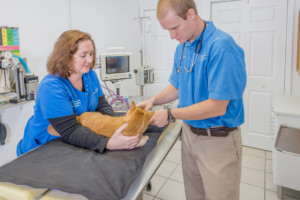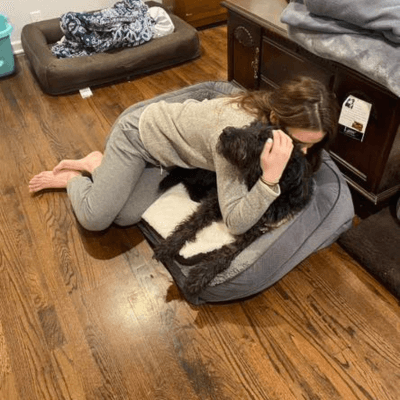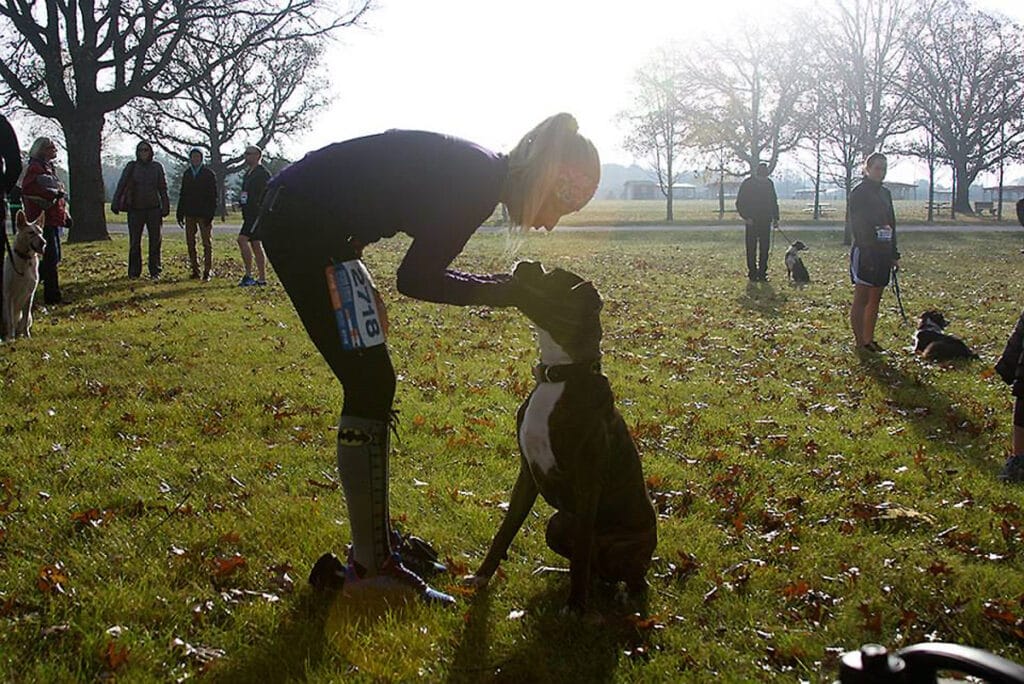Most of us already have full schedules, and the thought of more commitments can be overwhelming, but there are a few simple things you can do to ensure that your pet has a safer, healthier year!
 Re-Examine Eating Habits
Re-Examine Eating Habits

More than half of pets in the U.S. are overweight or obese. Make sure you’re using the correct measuring cup so you aren’t just “approximating” the amount of food you’re giving your pet. Try to be as consistent and precise as possible—one cup means one cup level, not one cup heaping! Just “eyeballing” portions can easily lead to overfeeding.
Tailor your pet’s diet to his/her age and activity level. Just because your pet needed 1.5 cups of food three years ago doesn’t mean that amount is still appropriate for her. Similarly, your pet may be far less active in the cold winter months and would, therefore, require less food.
The feeding guidelines on the bag or box of pet food are only meant to be rough guidelines. Each pet has different size, activity level, metabolism, etc. that needs to be factored in.
 Good Oral Hygiene
Good Oral Hygiene
Most of us already know that regular tooth brushing and periodic dental cleanings will not only keep our pets’ teeth in great shape but will also prolong their lives. How can we manage New Year Pet Resolutions like this with everything else we have going on though?
Thorough brushing only takes a minute or two, so failure to regularly brush has less to do with lack of time than it does with focus and discipline. Many diligent pet owners find it helpful to literally schedule the task on their calendars. Others just designate the same days each week to help keep them on track. Try linking the brushing to something you already do regularly. For example, if you always floss three times/week, tie your pet’s tooth brushing into that activity.
The key to successful resolutions is to strive for progress, not perfection. If you currently are only brushing your pet’s teeth once a week, aim for two days a week. Any improvement will help your pet’s health! For tips on handling your pets during brushing, reference our pet education article Handling Exercises for Trimming Nails and Brushing Teeth.
 Get More Active
Get More Active
Yes, we had to include this one. However, small changes really add up, so start with manageable goals! For example, 5 minutes of fetch per day can significantly lengthen your pet’s life!

For cats, games that stimulate predatory instincts are usually irrisistable for them. Get in the habit of dangling a fishing rod toy, for example, when you’re talking on the phone. This encourages some aerobic activity with very little effort on your part.
Another idea is to increase the level of activity in cats is associated with feeding. Simple changes, such as placing the food bowl in a slightly less accessible location, may be beneficial. You can try putting the food bowl on top of a small platform so that the cat has to climb up to gain access to it, or you can place multiple bowls around the house so that the cat has to walk from one bowl to the other to complete his meal. As with all New Year Pet Resolutions, the key is to remember that small changes can make a big impact over time.
 Update Tags
Update Tags
As you ring in the New Year, don’t forget to make sure your pet’s tags are up to date. If you’ve moved recently or changed your phone number, take the time to order new pet ID tags. If your pet has a microchip, make sure your contact information is current with the microchip registry as well.
Of all the New Year Pet Resolutions, this one can be the easiest to procrastinate, but it only takes a second for a pet to escape. It’s a small simple resolution, but with over 10 million pets lost each year, it can’t be overstated!
 Schedule Your Pet’s Annual Checkup
Schedule Your Pet’s Annual Checkup
Why is an annual checkup so important? Aside from the vaccinations your pet may need to prevent disease, the wellness exam is also an opportunity to evaluate changes in your pet that may be precursors to something more serious. Here are some of the issues we evaluate:

- Note weight and age changes since the last exam
- Ask about any lifestyle changes, such as a previously indoor cat that now goes outside, or a dog that now takes walks with you on wildlife trails
- Perform a physical exam of mouth, teeth, eyes, ears, skin, coat and paws
- Ask you about any unusual behavior in your pet, such as drinking more water, eating less, sleeping more, or a change in activity level
- Look for early disease signs and recommend appropriate testing for suspected diseases including the heart, liver and kidney diseases, arthritis, and cancer
A regular physical examination is just as important for pets as it is for humans. A year in a pet’s life is equivalent to 6 or 7 years in a human life. As with humans, the earlier we can catch a pet’s disease and begin treatment, the better. Examinations are essential in catching disease early as well as teaching clients about symptoms of common diseases, what physical or behavioral changes are serious, and how to prevent disease through proper nutrition and supplements.
Overall, with just a few simple New Year Pet Resolutions, you can enhance your pet’s health for 2017, and hopefully for many years to come!

 Re-Examine Eating Habits
Re-Examine Eating Habits Good Oral Hygiene
Good Oral Hygiene Get More Active
Get More Active Update Tags
Update Tags Schedule Your Pet’s Annual Checkup
Schedule Your Pet’s Annual Checkup


